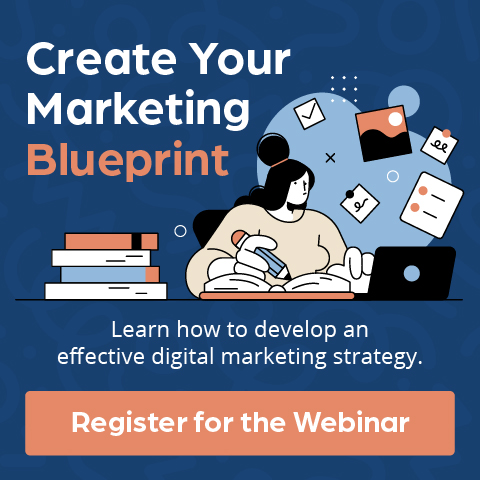So close and yet… There could always be that health insurance sale that got away. But with more sales closing techniques in your back pocket, hopefully they’ll be few and far between.
Listen to this article:
As a health insurance agent, you’re in the relationship business. Your main objective is (we hope!) to serve your clients and help them find the right health plans for their unique circumstances.
But you’re also in the business of making sales and closing deals. Having different types of sales closes to fall back on will help you hone your skills and be the savvy agent we know you want to be.
Remember the Relationship
We’ve already outlined four effective methods of closing sales you can use in your business and the importance of building that client relationship first. But the relationship aspect is so essential, we need to say it again.
People buy from people they trust. You can’t close a deal you haven’t properly opened!
By opening a deal, we mean this: lay the groundwork of relationship before you even say, “This plan…” Build your relationship with your client by:
- Showing genuine interest in who they are
- Actively listening and demonstrating empathy
- Gauging their interest levels in certain products or benefits
- Identifying what they need out of a health plan
Read more about why a client retention mindset is so important for building trust with clients to grow your insurance business.
3 More Ways to Close the Deal
There are many health insurance closing techniques to choose from, but some will be more applicable than others. Since you’re selling plans on behalf of carriers, collecting your commission from them, and not charging your client anything for your services, you won’t be able to offer a “better deal” like a lower premium or buy one, get one incentive. That’s out of your power.
Here are three additional closes — not mentioned in our 4 Effective Techniques for Closing Insurance Sales post — that you can utilize as an insurance agent.
1. The Question Close
Very useful for those clients who aren’t forthcoming with their opinions, the question close allows you to steer the conversation a variety of different ways. You can ask questions to eliminate objections, clarify responses, or ask point blank whether they want to move forward.
You can ask questions to eliminate objections, clarify responses, or ask point blank whether they want to move forward.
Additionally, consider tossing out a question in response to a question, which throws the ball back into the client’s court. Doing this can provide you with a little breathing room to figure out your response while also empowering your client to articulate what’s important to them. However, we recommend paying attention to if your client is receptive of this strategy or frustrated by it; they may view it as an outright deflection or rude.
Here are some ways you can ask questions to close a sale:
- Eliminate objections: “Is there anything preventing you from enrolling in this plan today?”
- Clarify responses:
- Agent: “Do I understand correctly that having a low premium is important to you?”
- Client: “Yes.”
- Agent: “Great. Do you feel like I’ve understood your needs?”
- Client: “Yes.”
- Agent: “Please let me know if those needs ever change. Are you ready to move forward with the enrollment now? We can knock it out in about ten minutes.”
- Question/Question:
- Client: “Does this plan have any added benefits?”
- Agent: “What kind of benefits would you find useful? What would you use it for?”
- Point blank: “Given our discussion, do you see this plan fitting your health needs and lifestyle?”
Remember, a “no” isn’t the end, just a jumping off point for more questions! Although the question close only mentions one in its name, be prepared to ask several or many since you can spread this type of close throughout the meeting to propel it forward toward the final decision.
2. The Benjamin Franklin Close
Sometimes the best way to approach a decision is to make a good, old-fashioned pro and con list just like Benjamin Franklin used to do. The Benjamin Franklin close in sales works best with either-or decisions, not one that’s nuanced with many options as the list gets too complicated.
If you’re at the end of a sales presentation, however, a pro and con list comparing a Medicare Advantage (MA) plan to a Medicare Supplement/Part D drug plan pairing might be just the thing to push your client to finalize their selection. Writing out the list on a whiteboard or tablet can help your client visualize the options better. This is especially useful for clients having a difficult time deciding what’s important to them.
The Ben Franklin closing technique is especially useful for clients having a difficult time deciding what’s important to them.
You could make a pro/con list showing your client the reasons to buy vs. not to buy from you, but that leaves the door too open for your client to walk away. By comparing two plan options, you assume that your client is going to select a plan (i.e., the assumptive close); you’re just there as an experienced professional, helping them see which plan is the better fit.
Using the Ben Franklin close with the assumptive close to compare two plans can be a win-win. You get the sale either way, and your client might feel empowered and in control of their health decisions.
Here’s an example of a pro and con list comparing two different MA plans:
Cross reference the pro/con list to your notes and knowledge of what’s important to your client. Then, wrap this Ben Franklin close up with a dash of the question close! “Which plan do you think is the best fit based off our list?”
3. The Modified Sharp Angle Close
Traditionally, the sharp angle close deals with objections by surprising the potential buyer with an agreement statement and then asking for them to sign. For example:
- Person shopping for a car: “I love this car but not those cheap tires.”
- Car salesperson: “If I throw in four free tires, will you purchase this car today?”
The sharp angle is created in your response, by agreeing and asking point blank in the same breath.
As we’ve already mentioned, however, it’s out of an insurance agent’s power to cut deals like this. You can’t reduce premiums. You can’t throw in free XYZ. That’s why agents must take a modified approach.
Instead, the modified sharp angle close might look something like this:
- Client: “I’m just not really sure I’d use some of the added benefits that much.”
- Agent: “If I could show you some different ways you could utilize these benefits in a way that makes sense for you, would you be comfortable moving forward with an enrollment today?”
In the above example, the client is stuck on a small detail of the plan, and even though the benefit seems like a no-brainer, people object to things for all sorts of different reasons! Modifying this close takes the objection and turns it into an opportunity for education and exploration.
Modifying the sharp angle close takes the objection and turns it into an opportunity for education and exploration.
If you’re going to make such statements, however, make sure you’re OK with a client potentially saying “No.” But then again, a no could just be another opportunity to try another tactic!
Close to the Close
With seven total closing sales techniques to use, it’s time to practice your insurance sales pitch! Write up a couple of scripts and ask your friend or partner to rehearse with you. Stick some subtle sticky notes in your meeting materials to remind you of your options (e.g., try a pro/con list). Make sure to put in the work of connecting with a client and learning their needs, interests, and preferences before trying to close the deal with one of these classic strategies.
Want to learn how to improve your closing skills? Register with Ritter and learn from our sales team. Is there anything preventing you from registering today? It’s completely free, and you gain access to contracts, support, technology, and resources!






Not affiliated with or endorsed by Medicare or any government agency.
Share Post